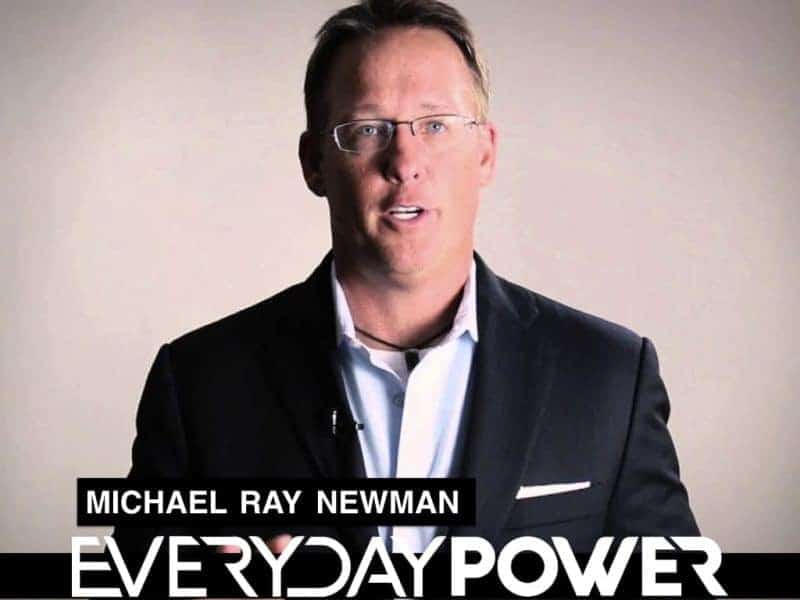10 Things Happy, Successful People DO NOT Focus on
It’s easy to look at the latest overnight success and think – “Wow, look at them, so happy, so successful, so free” – and think that something must be wrong with you.
Because even though you are constantly trying to make something happen, you don’t feel successful or energized, no instead you feel worn out with nothing left to give.
If this is the case for you, perhaps it’s not what you are doing to become successful but rather what you are still focusing on to become successful.
Even the slightest tilts of lost focus is enough to shift our context and frame of mind from where we should be headed to instead a completely different one.
So what do those people DO to get through these moments of lost focus?
How do they zero in on the task at hand to become a success?
Perhaps it’s not what they FOCUS on, but rather what they DON’T FOCUS on that makes the real difference.
The Clock Never Stops
A successful person will never focus on the clock.
This doesn’t mean they are late for meetings or blissfully ignorant of their problems, rather it means when they are knee deep in problem solving mode – they will keep working on the problem until early in the morning or late into the night.
The best “pat on your back” you will ever give yourself is the moment you lift your head up from your screen to come upstairs only to see that the day has gone by and it is now dark outside.
Yes you missed a nice day outside, but you accomplished so much without worrying about it that it was worth it.
The Critics that Surround Them
Sometimes there is a lot of value in saving those rejection letters – but those aren’t critics.
Those are templated letters free of emotion and critique of your work.
The Critics I am talking about are the ones that nitpick and rip apart your work – not for the sake of helping you – but for the sake of critiquing it.
If you are working on an unsolved problem, pushing the envelope and doing what will require many, many attempts and novel approaches – ignore the critics, disable their platform.
They aren’t there to help you, they are there to tear you down and build themselves up.
How do you differentiate criticism from feedback?
Someone giving feedback will want to hear your thoughts and approaches on where you were trying to go and try to engage you in dialogue, a critic will write a comment, never to be heard from again.
The Mistakes they Made
Would you take your 9 year old daughter aside and list out every mistake they made the day before at school in the hopes they don’t make them again?
Doubtful.
So why do we do this to ourselves?
Successful people realize that making a mistake is one step closer in the journey towards success – yes there will be misfires along the way and failures here and there, but they don’t dwell on them.
They learn from them.
Take your mistakes, take your utter and complete failures and learn from them.
Mistakes can come from working under pressure and part of success is knowing how to succeed when under pressure.
The Chatter in the Back Room
There will always be that dull hum happening anywhere you work.
Not quite out of earshot, but just enough so that you can hear something.
Almost like a mosquito that you need to keep swiping at again and again.
It’s that chatter from friends, neighbours, co-workers, the bank, your lawyer – “this will never work, this will never happen, what should we say, etc, etc” – that we allow to build to an overpowering crescendo in our daily lives.
A successful person will understand this back channel exists but they acknowledge the need to ignore it, run away from it and not look back.
The Unknowns that will always be there
If you want to solve a problem that no one has solved before there are going to be unknowns.
If you want to hire someone that you “think” is going to be great for the team but won’t know until you try there are going to be unknowns in their capabilities.
If you want to do your first deployment without running a full test, there are going to be unknowns in success.
If you want to make a difference, there will be unknowns.
Successful people choose to ignore the unknowns, forging ahead, knowing one day they will get there and eventually figure it out.
They will get there, but not today, and that is the difference and the unknowns are their blanket.
The Odds that are always stacked against them
Successful people always know the odds.
They have a mental tally running each and every day on what good can and should come from what they are doing.
They don’t write this down into spreadsheets or databases – no this information is stored near the fight or flight part of their brain, sometimes referred to as the Lizard Brain (by Seth Godin).
In the end, they know the odds, and they choose to move forward.
Remember that, being successful is not about ignoring the odds, it’s about knowing them, knowing how the probabilities and forging ahead.
It’s when we acknowledge the odds and turn to fight, that we start to become successful.
What They Don’t Have
I have seen people accomplish amazing things with nothing where others had everything.
Where some are hardwiring and building their own equipment, doing backups to thumb drives because that is all they have and others are bringing in family to complete the last large shipment to go out the door by midnight.
It is easy to get frustrated that you don’t have all the perfect resources both technical and human to get the job done.
But it is a successful person who finds innovative solutions to these problems that understand the value of that work, and feels the satisfaction that once they have moved on from this obstacle can take on more with less.
The Skills They Don’t Have
I don’t know how to make cabinets, but I have a really great idea on making a new hinge for a cabinet that could change the way the industry works.
If only I knew more about cabinets?
Have you ever found yourself saying that to yourself?
If only I knew more?
At this point you really have two options – go learn more about it (and bide your time while learning) or find someone that does and work with them on it.
Successful people don’t sweat the skills, because they aren’t trying to horde the skills, if the team has the skills and the team delivers, than the team is successful.
Successful people differ in not having the mindset that all skills must be owned by them and them alone.
The Battles they Lost
Successful people remember the battles they should have done better at, should have focused a little more on, and should have been a little more adept at.
But they don’t keep a tally, they don’t keep a win-tie-loss record, they readjust and move forward.
Successful people learn lessons from the battles they have lost, but they don’t count the scars and wear them on their sleeves.
The Excuses of Others
A successful person can tell when someone is making an excuse for not getting something done and a reason for not having accomplished their task.
They are two very different things and successful people know it.
Did you get it done?
No (this is starting to sound like an excuse) – get it done.
This sounds harsh, rough, unfair right?
Sometimes it needs to be – if your success is based on wasting time on that excuse you’re pulling yourself down in the process.
Take a read through that list again.
How many of these are you focussing on?
Perhaps not fully and completely, but just enough that it sways your focus from your true goals?
5% of the time, 10% of the time?
What would change in your approach if you were no longer expending any effort on focusing on these items?
What could change not just for your current venture but you as a person?
How would this change your leadership and mentorship style?
Immensely?
Incredibly?
Insurmountably?
Then stop focusing on the things in life that are holding you back from success and start focusing on being the success that you know you need to be.











